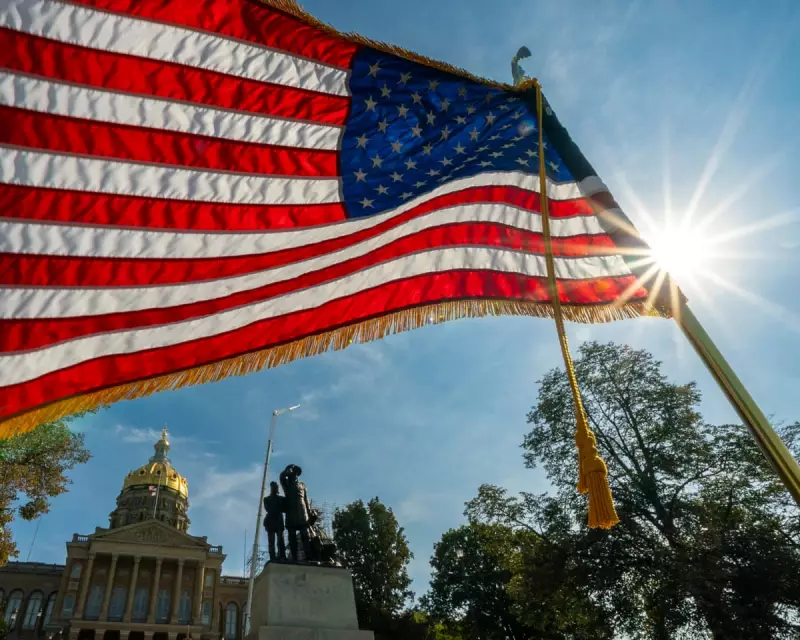
Iowa Governor Kim Reynolds has ignited a political firestorm by issuing a directive for all state flags to be flown at half-mast, honouring the late conservative firebrand and Turning Point USA founder, Charlie Kirk.
The unprecedented move, detailed in an official proclamation, has drawn sharp criticism from those who view it as a deeply partisan appropriation of a solemn honour traditionally reserved for fallen soldiers, respected public servants, and figures of national unity.
The governor's order mandates that flags on all state buildings and grounds be lowered from sunrise to sunset on the day of Kirk's private funeral service. The proclamation credits Kirk with "spurring a national movement empowering young Americans to embrace conservative values" and "championing American freedom and prosperity."
A Divisive Figure Honoured
Charlie Kirk was a polarising figure in American politics. As the head of Turning Point USA, he was a prolific fundraiser and a vocal supporter of Donald Trump, known for his provocative statements on race, education, and governance. His passing has become a flashpoint in the ongoing culture wars, with the governor's tribute amplifying the division.
Critics were swift to condemn the decision. Democratic state representative Ross Wilburn questioned the precedent, asking which Iowans would be deemed worthy of such an honour and which would not. He emphasised that the gesture should be reserved for those who have made "extraordinary sacrifices and contributions to the state and nation."
The Debate Over Protocol
This incident raises fundamental questions about the protocols and propriety surrounding the half-mast honour. While governors possess the authority to order such tributes for former state officials or prominent citizens, the decision to bestow it upon a partisan activist—rather than a elected official, veteran, or first responder—is seen by many as a significant break with tradition.
The strong reaction underscores the deepening political divides in the United States, where even symbolic acts of mourning can become fiercely contested territory. The governor's office has stood by its decision, framing it as a rightful acknowledgement of a prominent Iowan's influence, while opponents see it as a contentious political statement that cheapens a respected tribute.






